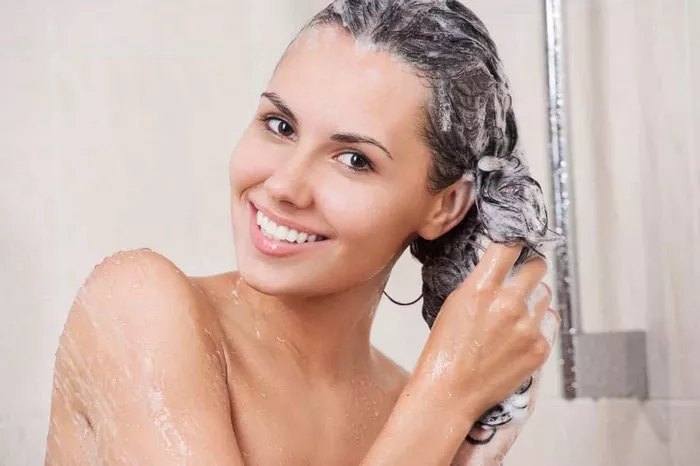Choosing the right shampoo can transform your hair care routine. For many people, sulphate-free shampoos have become a game-changer. These products are gentler, protect hair color, and maintain natural oils. But with so many options, how do you pick the best one?
This essay breaks down everything you need to know about sulphate-free shampoos, including top recommendations, ingredients, and tips for different hair types. Let’s dive in.
What Are Sulphates, and Why Avoid Them?
Sulphates are chemicals used in shampoos to create lather. The most common types are Sodium Lauryl Sulphate (SLS) and Sodium Laureth Sulphate (SLES). They act as surfactants, stripping away dirt and oil. While effective, sulphates can be harsh. Here’s why many avoid them:
Dryness: Sulphates strip natural oils, leaving hair dry and brittle.
Color Fading: They wash away hair dye faster, making color-treated hair dull.
Scalp Irritation: Sulphates may cause itching or redness, especially for sensitive skin.
Curly or Frizzy Hair: They disrupt natural curl patterns, increasing frizz.
Sulphate-free shampoos use milder cleansers like coconut-derived surfactants or amino acids. They clean without over-drying, making them ideal for delicate or treated hair.
Benefits of Sulphate-Free Shampoos
Preserves Hair Color: Gentle cleansing keeps dyed hair vibrant longer.
Retains Natural Oils: Balances scalp moisture, reducing dryness.
Reduces Irritation: Safe for sensitive scalps or conditions like eczema.
Enhances Hair Texture: Improves softness and manageability for curly or coarse hair.
Environmentally Friendly: Many sulphate-free brands use natural, biodegradable ingredients.
Top 5 Sulphate-Free Shampoos: Detailed Reviews
Olaplex No. 4 Bond Maintenance Shampoo
Key Ingredients:
- Bond-building technology (Bis-Aminopropyl Diglycol Dimaleate)
- Coconut oil, panthenol (pro-vitamin B5)
Benefits:
- Repairs damaged hair bonds from heat, coloring, or chemicals.
- Adds shine and reduces breakage.
- Thickens fine hair without weighing it down.
Best For: Chemically treated, damaged, or fine hair.
Price: High-end (30–40 for 250ml).
Pros:
- Noticeable repair after 2–3 uses.
- Safe for color-treated hair.
- Luxurious lather despite being sulphate-free.
Cons:
- Expensive for daily use.
- May feel heavy for very oily scalps.
Pureology Hydrate Shampoo
Key Ingredients:
- Jojoba oil, sage extract
- Green tea, UV filters
Benefits:
- Intensely hydrates dry, color-treated hair.
- Protects against UV damage and environmental stress.
- Vegan and free from parabens or harsh salts.
Best For: Color-treated, dry, or frizzy hair.
Price: Premium (35–45 for 266ml).
Pros:
- Rich lather and fresh minty scent.
- Extends time between salon visits for colored hair.
- Safe for keratin-treated hair.
Cons:
- Contains fragrance (may irritate sensitive scalps).
- Not ideal for oily hair types.
SheaMoisture Coconut & Hibiscus Curl & Shine Shampoo
Key Ingredients:
- Coconut oil, hibiscus flower extract
- Silk protein, neem oil
Benefits:
- Defines curls and reduces frizz.
- Strengthens hair with fatty acids and proteins.
- Affordable and widely available.
Best For: Curly, coily, or thick hair.
Price: Budget-friendly (10–15 for 384ml).
Pros:
- Leaves hair soft and manageable.
- Natural, fair-trade ingredients.
- Pleasant tropical scent.
Cons:
- Heavy for fine or straight hair.
- May require a clarifying wash occasionally.
Kérastase Bain Magistral Shampoo
Key Ingredients:
- Edelweiss flower extract, ceramides
- Amino acids, glycerin
Benefits:
- Restores moisture balance in dry, brittle hair.
- Protects against split ends and environmental damage.
- Lightweight formula suitable for frequent use.
Best For: Dry, damaged, or aging hair.
Price: Luxury (40–50 for 250ml).
Pros:
- Immediate softness and shine.
- Professional-grade results.
- Delicate floral fragrance.
Cons:
- High price point.
- Packaging lacks a pump.
Maui Moisture Lightweight Hydration + Hibiscus Water Shampoo
Key Ingredients:
- Hibiscus water, aloe vera juice
- Coconut oil, plumeria extract
Benefits:
- Hydrates fine hair without residue.
- Strengthens strands and adds volume.
- 100% vegan and free from silicones.
Best For: Fine, oily, or thin hair.
Price: Drugstore (8–12 for 385ml).
Pros:
- Light, refreshing texture.
- Affordable and cruelty-free.
- Pleasant floral scent.
Cons:
- Less effective for very dry hair.
- Contains mild synthetic fragrances.
How to Choose the Best Sulphate-Free Shampoo for Your Hair Type
Color-Treated Hair:
Look for UV protection and color-lock technology (e.g., Pureology Hydrate).
Avoid clarifying shampoos, which can strip dye.
Curly or Frizzy Hair:
Choose creamy formulas with oils like coconut or shea butter (e.g., SheaMoisture).
Avoid alcohols, which cause dryness.
Oily Scalp:
Opt for lightweight, balancing shampoos (e.g., Maui Moisture).
Tea tree oil or salicylic acid help control excess oil.
Dry or Damaged Hair:
Pick rich, nourishing blends with ceramides or argan oil (e.g., Kérastase).
Avoid over-washing (2–3 times a week is ideal).
Sensitive Scalp:
Fragrance-free and hypoallergenic options (e.g., Vanicream Free & Clear).
Test for irritation before regular use.
Conclusion
Sulphate-free shampoos offer a healthier, gentler way to care for your hair. Whether you have curls, color-treated locks, or a sensitive scalp, there’s a perfect option. Brands like Olaplex and SheaMoisture cater to diverse needs without compromising quality. Remember to match the shampoo to your hair type and be patient during the transition phase. With consistent use, you’ll notice stronger, shinier, and happier hair.
Related topics:
Professional Shampoo: Meaning, Ingredients & Benefits
5 Best Shampoos to Use After a Perm
Top 5 Shampoos for All Types of Hair: A Comprehensive Guide


